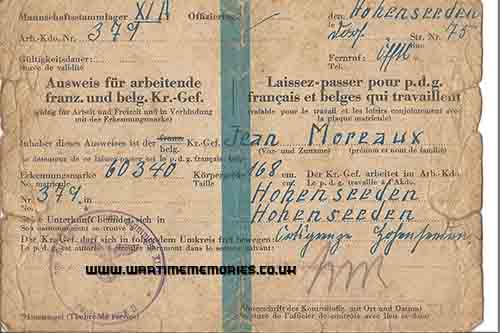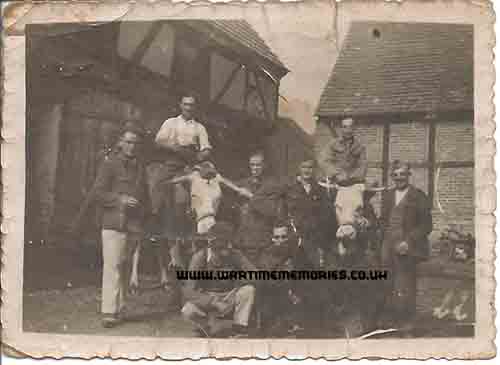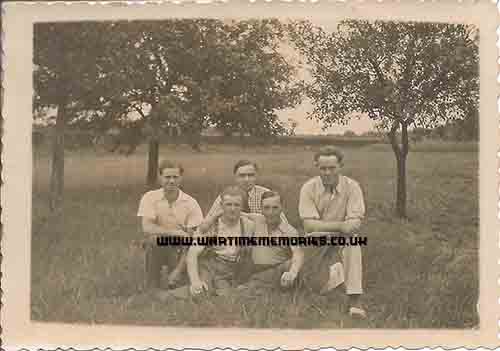Jean-Baptiste Moraux was born in Offagne, Belgium, on 30th August 1919. Before his military service, he was a factory worker in Paliseul.
He carried out his military service with the 1st Regiment des Chasseurs Ardennais from 16th November 1938. His service number was 110/90092 and he was under the orders of Lieutenant Raveau. He signed up for 17 months of service. After mobilization, he was stationed in Arlon at the beginning of the hostilities.
On 10th of May 1940, equipped with a machine gun, and with a comrade to feed it with ammunition, they were posted in Arlon, on the last floor of a private house, with a mission to prevent the enemy crossing the bridge from Schopach. The bridge is mined, and ready to be blown up.
Then came the incredible order to retreat. Before even firing a shot, the staff ordered the Chasseurs Ardennais to withdraw to Martelange. It is the French army that will come to defend the Belgian borders. The Belgian deminers have already left, and it is Jean-Baptiste who will arrange the detonator to blow up the bridge.
There follows an 18-day retreat to Antwerp. Dotted with fighting, these first companions in arms will fall on the field of honour.
He was taken prisoner on 28th of May 1940 in Knocke-Heist on the Belgian coast.
By train, the prisoners are taken to Germany at Altengabow's Stalag XIA near Magdeburg. Jean-Baptiste Moraux was given the number 60340.
The first months are difficult in the Stalag, and deprivations, bullying, and lack of food are the daily lot of prisoners. My father explained to me that eating potato peel was a luxury, the Germans understood it, the compound was surrounded by barbed wire. Some days, it was necessary to add tree leaves to the soup to thicken it a little.
In 1941, the camp received Russian prisoners. The Russians are mistreated and are victims of epidemics. With other prisoners, Jean-Baptiste had the difficult task of burying the numerous dead of the camp in mass graves.
This step was probably the trigger for his request to join an agricultural labour Kommando. With the help of a German-speaking comrade, they managed to be integrated into agricultural kommando No 379 which worked on farms in the Hohenseeden region.
I have his Pass (Ausweis) for working kommando
Life in the work kommandos was random, depending on the mood of the farmer owners. It could vary from worst to best.
Stalag XI A was liberated on 3rd of May 1945 by the IX American Army, joined the next day by the Russian army.
Jean Baptiste Moraux was repatriated on June 1st, 1945 to Offagne. In total, almost 7 years of his life was devoted to the Motherland, let's remember!
After returning to Offagne, he married Marie-Louise Reitz and had four children. He worked as a driver on the Belgian Railways.
Jean Baptiste died in Arlon in 1993.









